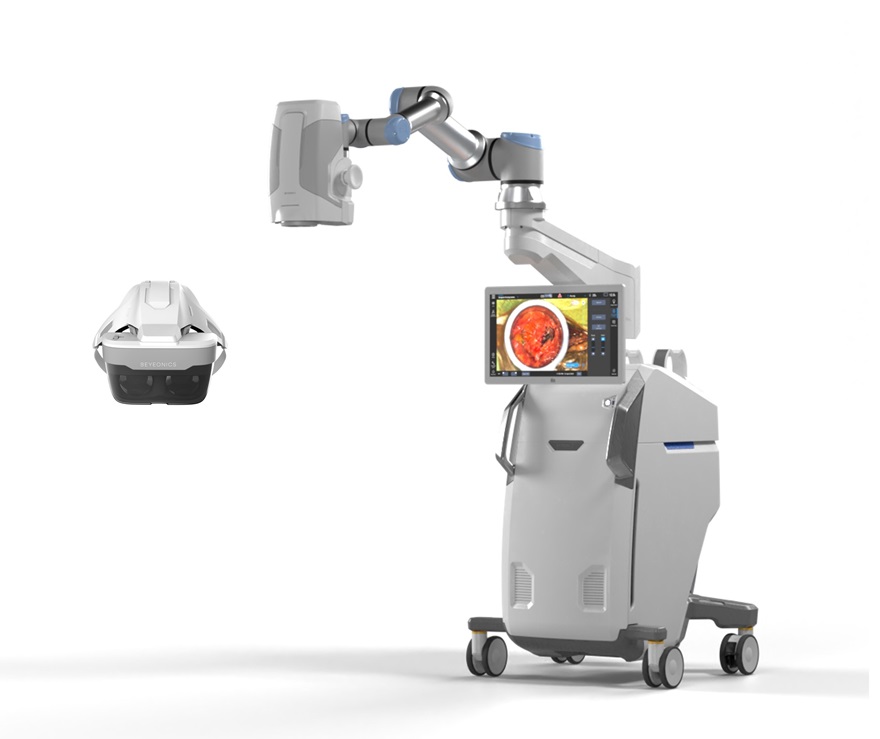Rapid Troponin Analyzer Assists Heart Attack Diagnosis
|
By HospiMedica International staff writers Posted on 07 Jun 2016 |
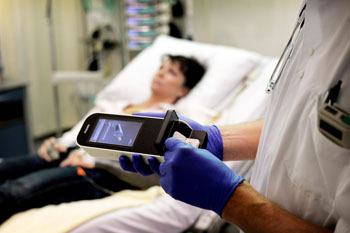
Image: The Minicare I-20 analyzer (Photo courtesy of Royal Philips).
A novel hand-held blood testing device delivers cardiac troponin I (cTnI) results in less than 10 minutes at the point of care (POC).
The Royal Philips (Philips; Amsterdam, The Netherlands) Minicare I-20 analyzer is based on proprietary magnotech biosensor technology, which measures target molecules in very low, picomolar concentrations using assay reagents contained in a disposable cartridge. A droplet of blood from a finger prick or venous whole blood tube can be applied directly on the cartridge; once applied, the blood is automatically drawn into the measurement chamber by capillary forces.
The entire assay process is carried out by the controlled movement of the magnetic nano-particles within the cartridge, a process that captures only those molecules that relate to the specific antibodies on the particles. The active magnetic assay control enables a precision normally associated with large laboratory analyzers, and multiplexing capabilities offer the possibility of simultaneously testing for multiple markers from the same droplet of blood.
The intuitive interface features incorporated fail-safes that guide the user throughout the entire process. In-built connectivity allows for direct transfer of the data to the laboratory or hospital information system (HIS) in order to update the patient electronic medical record (EMR). In addition, software upgrades are automatic using a remote service procedure, which reduces system down time.
“The Minicare I-20 is designed to help care providers reduce time to treatment and reduce time to discharge of patients, thereby helping to decrease crowding in the emergency department and leading to better use of hospital resources,” said Marcel van Kasteel, CEO of Handheld Diagnostics at Philips.
“Current guidelines for the diagnosis of myocardial infarction require blood test results of the biomarker cardiac troponin for the 90% of patients who present at the emergency department with chest pain, but are not diagnosed by an ECG,” said consultant chemical pathologist Paul Collinson, of St. George’s University Hospitals (London, United Kingdom) NHS Foundation Trust. “Blood samples are usually analyzed in the hospital laboratory, which can easily take more than an hour to get the result back to the ED physician. Point of care testing can significantly help to reduce the turnaround time.”
Cardiac troponin T (cTnT) and troponin I (cTnI) are cardiac regulatory proteins that control the calcium mediated interaction between actin and myosin. The measurement of serum cTnI and cTnT is superior in terms of sensitivity and specificity to cardiac muscle enzyme measurements in the identification of cardiac muscle damage, and now accepted as the standard biochemical marker for the diagnosis of MI.
Related Links:
Royal Philips
St. George’s University Hospitals
The Royal Philips (Philips; Amsterdam, The Netherlands) Minicare I-20 analyzer is based on proprietary magnotech biosensor technology, which measures target molecules in very low, picomolar concentrations using assay reagents contained in a disposable cartridge. A droplet of blood from a finger prick or venous whole blood tube can be applied directly on the cartridge; once applied, the blood is automatically drawn into the measurement chamber by capillary forces.
The entire assay process is carried out by the controlled movement of the magnetic nano-particles within the cartridge, a process that captures only those molecules that relate to the specific antibodies on the particles. The active magnetic assay control enables a precision normally associated with large laboratory analyzers, and multiplexing capabilities offer the possibility of simultaneously testing for multiple markers from the same droplet of blood.
The intuitive interface features incorporated fail-safes that guide the user throughout the entire process. In-built connectivity allows for direct transfer of the data to the laboratory or hospital information system (HIS) in order to update the patient electronic medical record (EMR). In addition, software upgrades are automatic using a remote service procedure, which reduces system down time.
“The Minicare I-20 is designed to help care providers reduce time to treatment and reduce time to discharge of patients, thereby helping to decrease crowding in the emergency department and leading to better use of hospital resources,” said Marcel van Kasteel, CEO of Handheld Diagnostics at Philips.
“Current guidelines for the diagnosis of myocardial infarction require blood test results of the biomarker cardiac troponin for the 90% of patients who present at the emergency department with chest pain, but are not diagnosed by an ECG,” said consultant chemical pathologist Paul Collinson, of St. George’s University Hospitals (London, United Kingdom) NHS Foundation Trust. “Blood samples are usually analyzed in the hospital laboratory, which can easily take more than an hour to get the result back to the ED physician. Point of care testing can significantly help to reduce the turnaround time.”
Cardiac troponin T (cTnT) and troponin I (cTnI) are cardiac regulatory proteins that control the calcium mediated interaction between actin and myosin. The measurement of serum cTnI and cTnT is superior in terms of sensitivity and specificity to cardiac muscle enzyme measurements in the identification of cardiac muscle damage, and now accepted as the standard biochemical marker for the diagnosis of MI.
Related Links:
Royal Philips
St. George’s University Hospitals
Latest Critical Care News
- AI Doubles Medical Professionals’ Accuracy in Reading EEG Charts of ICU Patients
- Flexible Device Enables Sweat Gland Stimulation and Simultaneous Biosensing
- WHO Publishes First Global Guidelines to Reduce Bloodstream Infections from Catheter Use
- Innovative Material Paves Way for Next-Generation Wearable Devices
- Wireless Electronic Suture Enables Postoperative Long-Term Monitoring Of Soft Tissue
- Transcatheter Valve Replacement Outcomes Similar To Surgery, Finds Study
- Revascularization Improves Life Quality in Chronic Limb-Threatening Ischemia, Finds Study
- Powerful AI Risk Assessment Tool Predicts Outcomes in Heart Failure Patients
- Peptide-Based Hydrogels Repair Damaged Organs and Tissues On-The-Spot
- One-Hour Endoscopic Procedure Could Eliminate Need for Insulin for Type 2 Diabetes
- AI Can Prioritize Emergency Department Patients Requiring Urgent Treatment
- AI to Improve Diagnosis of Atrial Fibrillation
- Stretchable Microneedles to Help In Accurate Tracking of Abnormalities and Identifying Rapid Treatment
- Machine Learning Tool Identifies Rare, Undiagnosed Immune Disorders from Patient EHRs
- On-Skin Wearable Bioelectronic Device Paves Way for Intelligent Implants
- First-Of-Its-Kind Dissolvable Stent to Improve Outcomes for Patients with Severe PAD
Channels
Artificial Intelligence
view channel
AI-Powered Algorithm to Revolutionize Detection of Atrial Fibrillation
Atrial fibrillation (AFib), a condition characterized by an irregular and often rapid heart rate, is linked to increased risks of stroke and heart failure. This is because the irregular heartbeat in AFib... Read more
AI Diagnostic Tool Accurately Detects Valvular Disorders Often Missed by Doctors
Doctors generally use stethoscopes to listen for the characteristic lub-dub sounds made by heart valves opening and closing. They also listen for less prominent sounds that indicate problems with these valves.... Read moreSurgical Techniques
view channel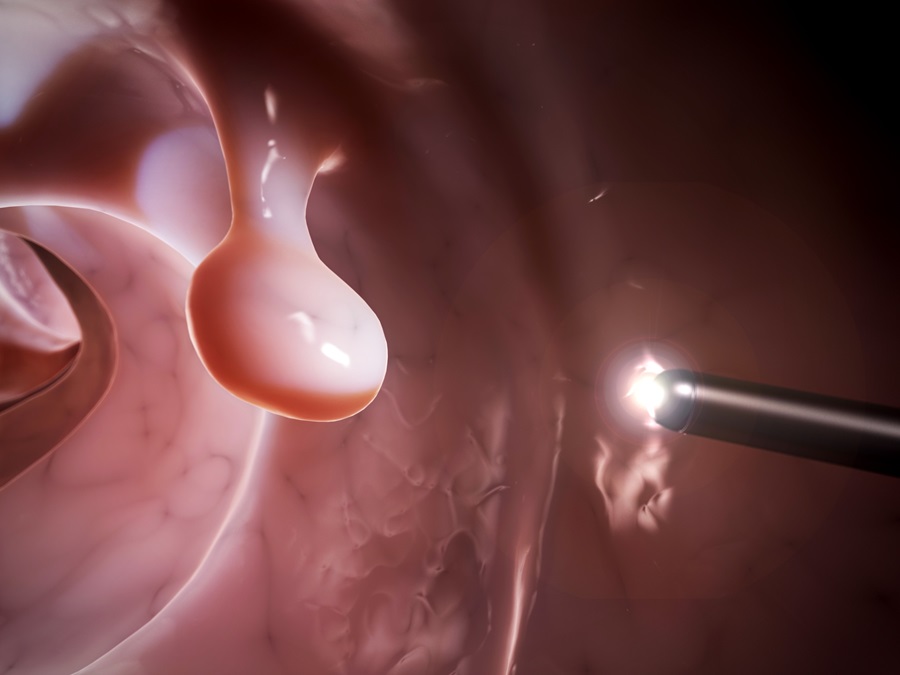
Study Warns Against Dangerous Smoke Levels Produced During Endoscopic Gastrointestinal Procedures
Healthcare professionals involved in certain smoke-generating endoscopic gastrointestinal procedures, such as those using electrical current to excise polyps, may be exposed to toxin levels comparable... Read more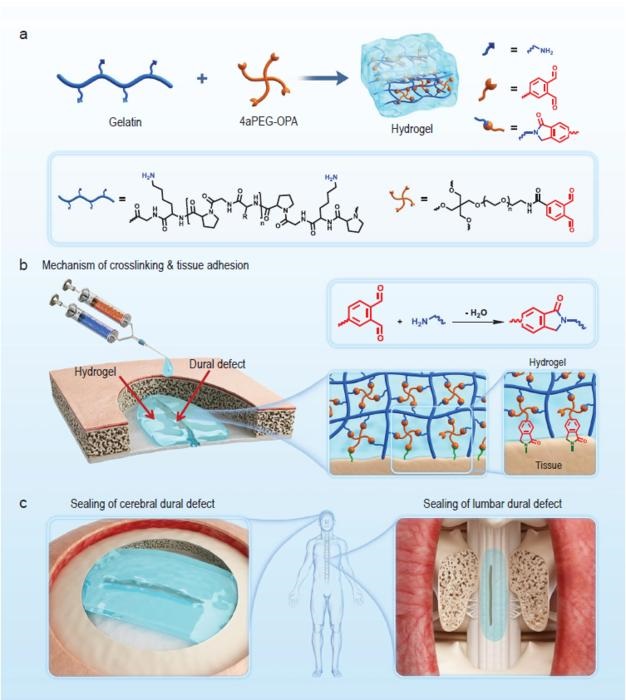
New Hydrogel Sealant Effective at Sealing Dural Defects and Preventing Postoperative Adhesion
The dura mater is a fibrous membrane of connective tissue that envelops the brain and spinal cord. In neurosurgical procedures that require access to the brain or spinal cord, opening the dura mater often... Read more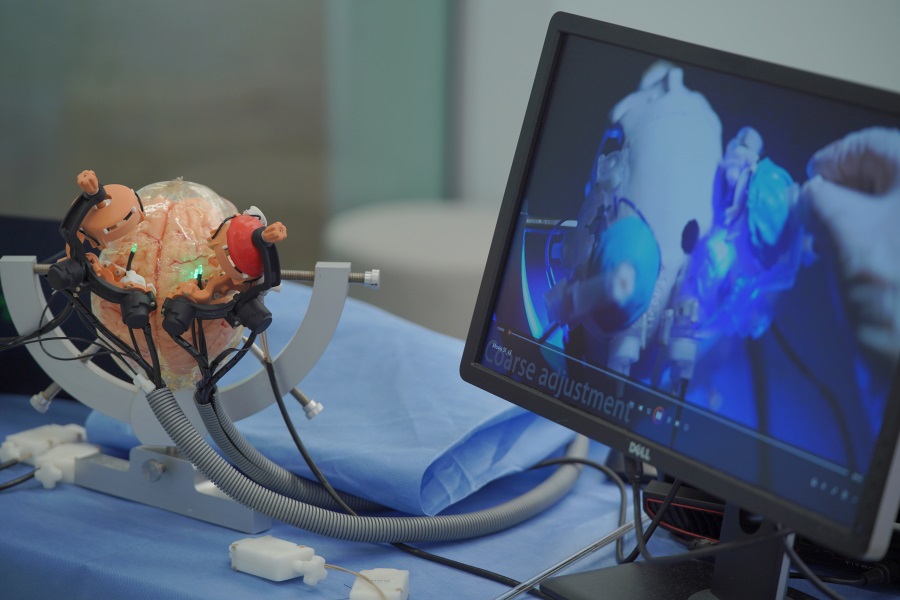
MRI-Guided Multi-Stage Robotic Positioner Enhances Stereotactic Neurosurgery Precision
Magnetic resonance imaging (MRI) offers significant benefits in neurosurgery, providing detailed 3D visualizations of neurovascular structures and tumors. Traditionally, its use has been restricted to... Read morePatient Care
view channelFirst-Of-Its-Kind Portable Germicidal Light Technology Disinfects High-Touch Clinical Surfaces in Seconds
Reducing healthcare-acquired infections (HAIs) remains a pressing issue within global healthcare systems. In the United States alone, 1.7 million patients contract HAIs annually, leading to approximately... Read more
Surgical Capacity Optimization Solution Helps Hospitals Boost OR Utilization
An innovative solution has the capability to transform surgical capacity utilization by targeting the root cause of surgical block time inefficiencies. Fujitsu Limited’s (Tokyo, Japan) Surgical Capacity... Read more
Game-Changing Innovation in Surgical Instrument Sterilization Significantly Improves OR Throughput
A groundbreaking innovation enables hospitals to significantly improve instrument processing time and throughput in operating rooms (ORs) and sterile processing departments. Turbett Surgical, Inc.... Read moreHealth IT
view channel
Machine Learning Model Improves Mortality Risk Prediction for Cardiac Surgery Patients
Machine learning algorithms have been deployed to create predictive models in various medical fields, with some demonstrating improved outcomes compared to their standard-of-care counterparts.... Read more
Strategic Collaboration to Develop and Integrate Generative AI into Healthcare
Top industry experts have underscored the immediate requirement for healthcare systems and hospitals to respond to severe cost and margin pressures. Close to half of U.S. hospitals ended 2022 in the red... Read more
AI-Enabled Operating Rooms Solution Helps Hospitals Maximize Utilization and Unlock Capacity
For healthcare organizations, optimizing operating room (OR) utilization during prime time hours is a complex challenge. Surgeons and clinics face difficulties in finding available slots for booking cases,... Read more
AI Predicts Pancreatic Cancer Three Years before Diagnosis from Patients’ Medical Records
Screening for common cancers like breast, cervix, and prostate cancer relies on relatively simple and highly effective techniques, such as mammograms, Pap smears, and blood tests. These methods have revolutionized... Read morePoint of Care
view channel
POCT for Infectious Diseases Delivers Laboratory Equivalent Pathology Results
On-site pathology tests for infectious diseases in rural and remote locations can achieve the same level of reliability and accuracy as those conducted in hospital laboratories, a recent study suggests.... Read more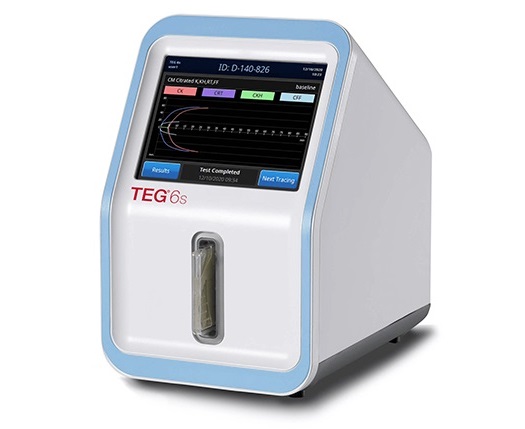
Cartridge-Based Hemostasis Analyzer System Enables Faster Coagulation Testing
Quickly assessing a patient's total hemostasis status can be critical to influencing clinical outcomes and using blood products. Haemonetics Corporation (Boston, MA, USA) has now obtained 510(k) clearance... Read more
Critical Bleeding Management System to Help Hospitals Further Standardize Viscoelastic Testing
Surgical procedures are often accompanied by significant blood loss and the subsequent high likelihood of the need for allogeneic blood transfusions. These transfusions, while critical, are linked to various... Read moreBusiness
view channel
MEDICA INNOVATION FORUM for the Healthcare Innovations of the Future
By always offering innovations and updating existing program formats, the internationally leading medical trade fair MEDICA in Düsseldorf has been successful for over half a century and always gives its... Read more












